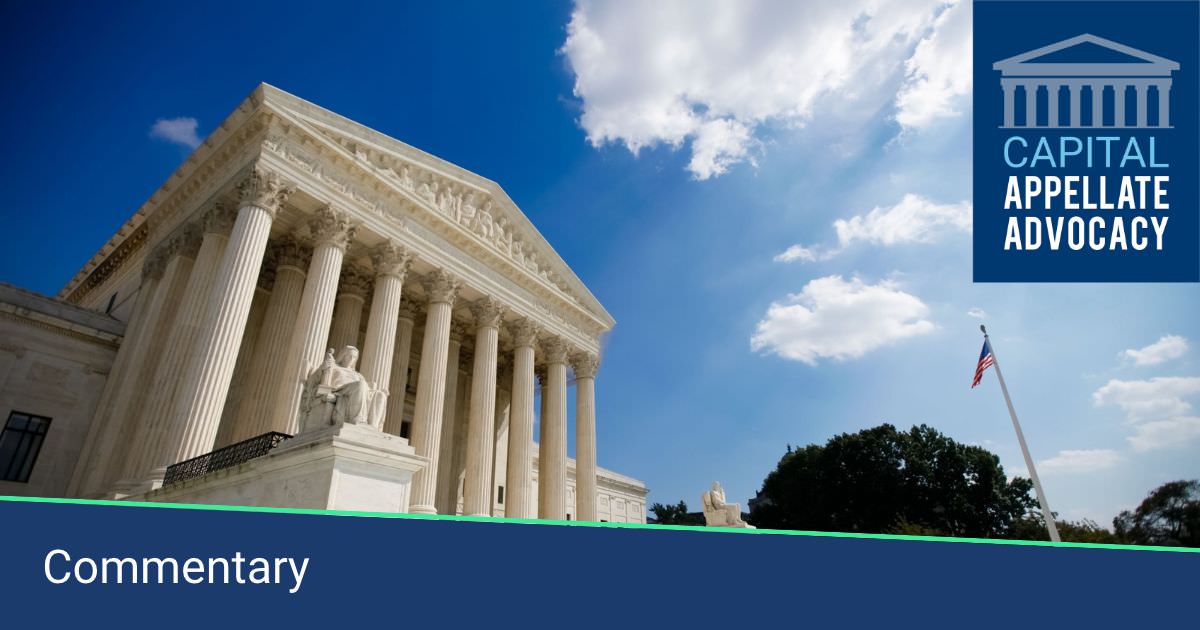If a federal contractor can establish that it is entitled to “derivative sovereign immunity” when hit with personal injury litigation for carrying out the government’s work, is it immune from suit or merely protected from liability? And if a federal district court denies a motion to dismiss that is based on derivative sovereign immunity, is that ruling immediately appealable to a federal court of appeals? In an August 26 amicus curiae brief filed in the Supreme Court on behalf of the United States, the Solicitor General contends that these are important questions that the Court should address—maybe.
The government’s amicus brief, which the Court invited last January, was filed in CACI Premier Technology, Inc. v. Al Shimari, No. 19-648. This is long-running litigation brought by Iraqi nationals who claim that CACI interrogators aided and abetted the abusive conduct of U.S. military personnel at Abu Ghraib prison during the Iraq War. When a federal district court denied CACI’s derivative sovereign immunity-based motion to dismiss the plaintiffs’ Alien Tort Statute claims, CACI appealed to the U.S. Court of Appeals for the Fourth Circuit under the collateral-order doctrine, which allows immediate appeal of certain types of district court rulings that are unrelated to the merits of a case.
As I explained in a Capital Appellate blog post, the Fourth Circuit held, however, that the collateral-order doctrine does not apply to district court orders that reject a government contractor’s derivative sovereign immunity defense. CACI then filed a certiorari petition requesting the Supreme Court to rule on the collateral-order issue.
A Supreme Court amicus brief that I wrote and filed on behalf of DRI-The Voice of the Defense Bar argues that allowing government contractors to immediately appeal district court orders that reject derivative sovereign immunity from suit promotes civil justice. Further, where a defendant is a war-zone support contractor, immediate appeal serves national defense interests such as ensuring that contractors are not deterred from providing vital war-zone logistical, technological, and other support services for the U.S. military. Such interests also include enabling the military to carry out its missions without the threat of becoming entangled in supposedly private tort litigation that in reality implicates military policies and decisions.
After the parties’ petition-stag briefs were filed, the Supreme Court issued an order calling for the views of the Solicitor General on behalf of the United States. The government’s just-filed amicus brief is somewhat of a mind-bender: The brief argues that—
(i) the collateral-order doctrine does not enable immediate appeal of district court orders denying derivative sovereign immunity, which according to the government, “is not genuinely an immunity at all; it is merely a defense to liability”; but
(ii) “litigation against the government, especially in the military context, often raises serious concerns that warrant early appellate review by other mechanisms”; but
(iii) Supreme Court review of the collateral-order issue is warranted “to address tension in the lower courts’ precedent regarding the appealability of orders denying certain defenses raised by government contractors and disagreement about the nature of the ‘derivative sovereign immunity’ defense in particular”; but
(iv) although CACI v. Al Shimari “would be a suitable vehicle to address the question presented,” the Court should hold CACI’s certiorari petition pending the disposition of two certiorari-granted cases that raise the question of whether “domestic corporations are properly subject to claims under the Alien Tort Statute.”
Assuming that the Supreme Court follows the Solicitor General’s recommendation, it will be some time until the final chapter of the Al Shimari saga is written.

